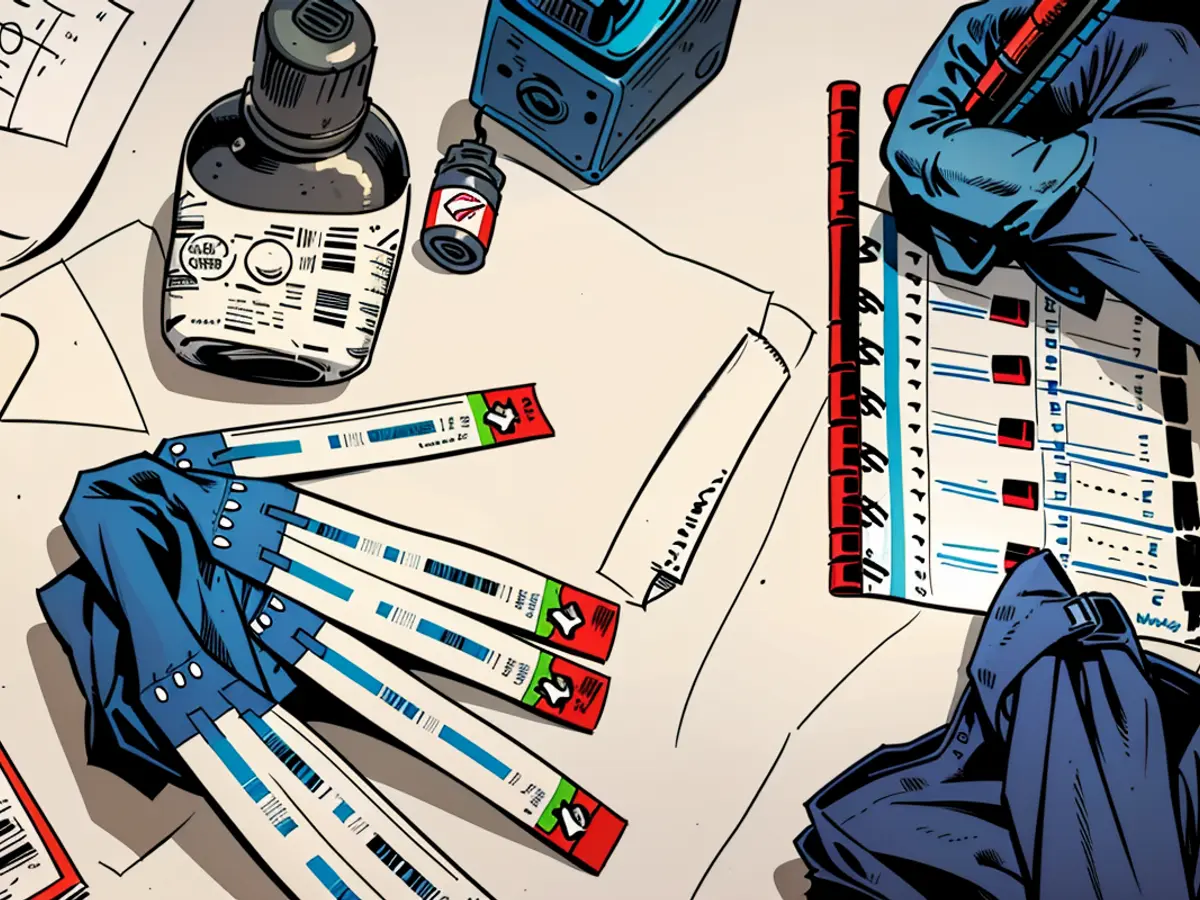UNO requests more engagement following Munich World Aids Conference
In the Bavarian state capital, the 25th World Aids Conference begins around 5:00 PM. At this largest professional event on the topic of HIV and AIDS worldwide, thousands of experts and specialists are expected to exchange ideas until Friday. The first conference day's program includes a speech from German Chancellor Olaf Scholz (SPD).
UNAIDS announced on Monday that the numbers from 2023 showed global improvement in the number of new infections, treatment of HIV-infected individuals, and a decline in AIDS-related deaths. There were reportedly 1.3 million new infections in the previous year, which is 100,000 fewer than in 2022 and a significant decrease since the peak of 3.3 million new infections in 1995. The UNAIDS goal of limiting the number of new infections to 330,000 cases next year is still far from being achieved.
The number of AIDS-related deaths decreased by 40,000 in 2023 compared to the previous year, to 630,000 cases. The access of HIV patients to antiretroviral medications has significantly improved. An estimated 30.7 million affected individuals received this treatment in the previous year, compared to only 7.7 million in 2010. However, much remains to be done to meet the goal of providing antiretroviral medications to 34 million affected individuals by 2025.
The regions most affected are still Eastern and Southern Africa, with 450,000 new infections in the previous year and 20.8 million HIV-infected individuals in total. An estimated 260,000 people died there in 2023 from AIDS-related causes.
UNAIDS criticized the stigmatization, discrimination, and at times criminalization of certain groups, which leads to higher infection rates because those affected are unable to seek help and could be safely treated. The HIV infection rate among people aged 15-49 worldwide is 0.8%. However, among prisoners, it is 1.3%, and among girls and women aged 15-24 in Eastern and Southern Africa, it is 2.4%.
The HIV infection rate is higher among sex workers (3.0%), drug users (5.0%), men who have sex with men (7.7%), and transgender individuals (9.2%).
UNAIDS Executive Director Byanyima criticized in an interview with the AFP news agency a "well-organized" and well-financed "pushback" on the rights of sexual minorities and birth control. While the number of new infections in some African countries south of the Sahara has decreased by more than half since 2010, there are regions in Europe, Central Asia, and Latin America where new infections are moving in the wrong direction and increasing.
Stigmatization keeps those affected from receiving appropriate treatment, Byanyima noted. In Eastern Europe and Central Asia, only half of the HIV-infected individuals are treated.
The German AIDS Help organization demanded a "clear signal" from the AIDS Conference in Munich. The goal of providing adequate care to all HIV-infected individuals globally is still far from being reached, the organization stated in Berlin. Despite significant progress in the fight against the disease, approximately one quarter of all people with HIV worldwide still have no access to life-saving medications.
Measures against HIV and AIDS are still underfunded globally, and there is a lack of political will in many countries," explained board member Sylvia Urban. In Germany as well, there are coverage gaps. People without residence papers or health insurance, for example, still have no regular access to HIV treatments. The solution to the problem is "overdue".
- At the 25th World AIDS Conference in Munich, the death case related to HIV and AIDS will be extensively discussed among experts.
- The decrease in new HIV infections reported by UNAIDS at the World AIDS Conference highlights global progress, but the UNAIDS goal of further reduction remains elusive.
- Olaf Scholz, the German Chancellor (SPD), is anticipated to deliver a speech at the World AIDS Conference focusing on HIV/AIDS, addressing the issue of inequality and new infection rates.
- The World AIDS Conference serves as a platform for UN and UN-related organizations, such as UNAIDS, to discuss strategies and engage in efforts to combat HIV and AIDS, especially in regions like Eastern and Southern Africa.
- Engagement in HIV and AIDS initiatives is essential for reducing the number of new HIV infections and promoting equal access to treatment globally, as advocated by the German AIDS Help organization.
- Inequality and discrimination play a significant role in HIV transmission, as people affected by HIV/AIDS in certain groups, such as sex workers and people without health insurance, face challenges in accessing necessary care.
- The World AIDS Conference in Munich underlines the need for increased funding and a stronger political commitment to combat HIV/AIDS, with change required, especially in countries with increasing infection rates.
- Addressing the issue of HIV/AIDS requires a concerted effort from governments, organizations, and individuals, as well as promoting education and awareness to decrease stigma, discrimination, and criminalization associated with the disease.







